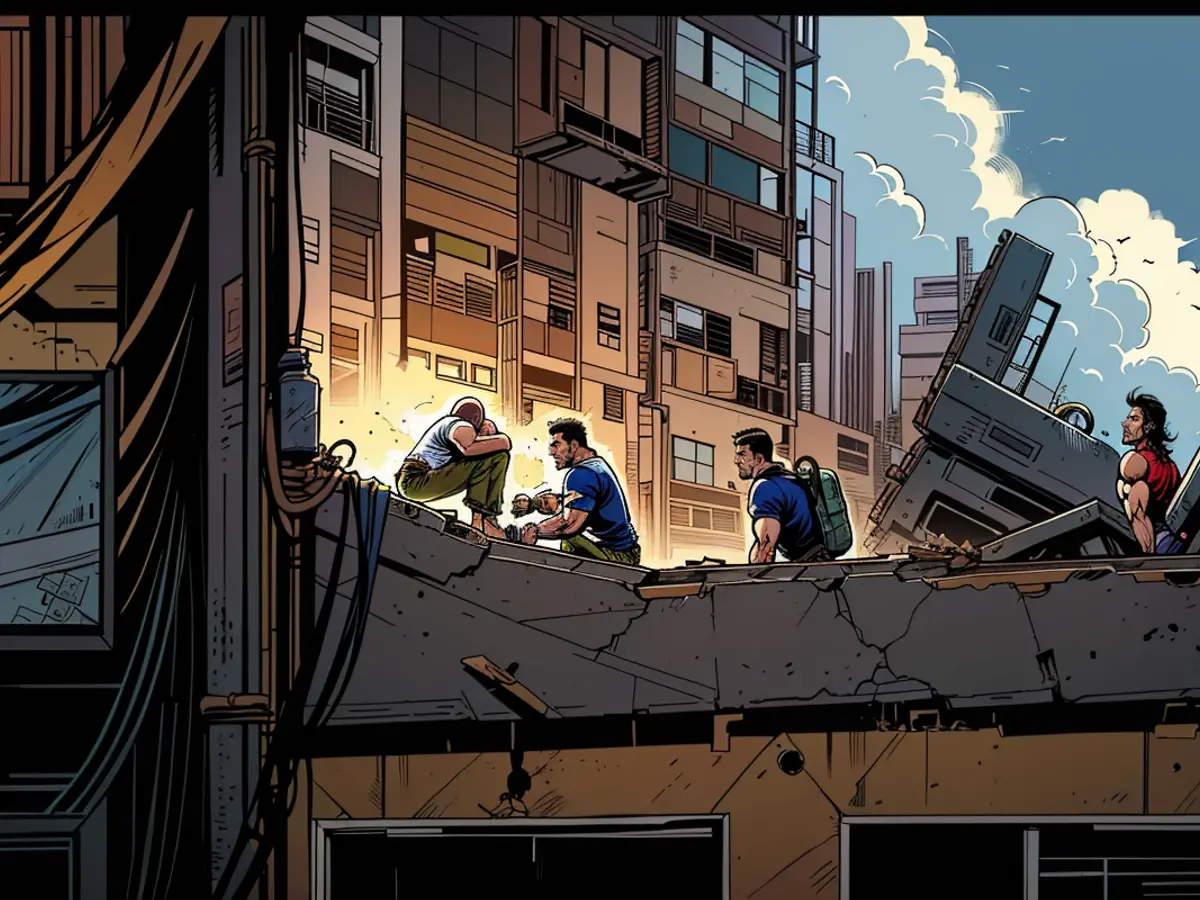Hamas leaders live and die under Israeli eyes
Israel's security forces can eliminate Hamas leaders at any time and anywhere, and no one should feel safe - this is the message Tel Aviv has been sending for many years. Officially, Israel does not claim responsibility for Haniyeh's killing, as it has done in many similar cases in the past.
The political leader of the radical Islamic Hamas, Ismail Haniyeh, was reportedly assassinated in the Iranian capital, Tehran, according to Palestinian sources. Hamas, which is at war with Israel in the Gaza Strip, blamed the enemy for the killing. Israel has not confirmed this, as is often the case with assassinations attributed to it.
Israel's security forces consistently demonstrate their ability to eliminate their enemies at any time and anywhere. Since the founding of Hamas in 1987 during the first Intifada - the first Palestinian uprising against Israeli occupation of the Gaza Strip and the West Bank - many of its leaders and key figures have been targeted and killed.

Yahya Ayyash - "The Engineer"
Ayyash was considered the mastermind behind a wave of Palestinian suicide bombings in Israel and earned the nickname "The Engineer." He died on January 5, 1996, when his mobile phone exploded in his hands. Palestinians blamed Israel, which did not claim responsibility. Hamas responded with four suicide attacks, killing 59 people in three Israeli cities over nine days in February and March 1996.

Khaled Mashal
The Hamas leader gained international attention in 1997 when Israeli agents injected him with poison on a street outside his office in the Jordanian capital, Amman. Ordered by then-Israeli Prime Minister Benjamin Netanyahu, the assassination attempt enraged King Hussein of Jordan, who threatened to hang the assassins and cancel the peace treaty between Jordan and Israel unless the antidote was provided. Israel complied and also agreed to release Hamas leader Sheikh Ahmed Yassin. Seven years later, Yassin was killed by Israel in the Gaza Strip.

Ahmed Yassin
Sheikh Ahmed Yassin was one of the founders of Hamas and its spiritual leader. Paralyzed, he was killed by a helicopter-launched missile attack on March 22, 2004, as he left a mosque in Gaza City. Israel had attempted to kill him in 2003 while he was in a Hamas member's house in Gaza City. His death sparked protests and criticism in Palestinian territories and the Muslim world. Thousands of Palestinians marched through the Gaza Strip, vowing revenge. Yassin's death led to a significant escalation of the Israeli-Palestinian conflict, highlighting the deep-seated tensions and immense challenges in achieving peace in the region.

Abdel-Aziz al-Rantisi
On April 17, 2004, Hamas leader Abdel-Aziz al-Rantisi was killed by an Israeli helicopter-launched missile while in a car in Gaza City, along with two bodyguards. Hamas leadership went into hiding, and the identity of Rantisi's successor was kept secret. Rantisi was killed shortly after he took over Hamas leadership in the Gaza Strip following the assassination of Sheikh Ahmed Yassin.

Mohammed Deif
Deif was hailed as the mastermind of bomb-making for Hamas. He was killed on October 21, 2004, in an Israeli airstrike on Gaza City. Deif was the number two in the military wing of Hamas, the Al-Qassam Brigades, and was known as the "father of the Qassam rocket." Hamas frequently fired such improvised rockets at Israeli cities.

Nizar Rayyan
Rayyan was a cleric who belonged to the most radical political leaders of Hamas. He had called for new suicide attacks in Israel. Rayyan was killed in an attack on the Jabalia refugee camp on January 1, 2009. Two of his four wives and seven of his children also died in the attack. A few days later, on January 15, Hamas Interior Minister Said Seyam was killed in an Israeli airstrike in the Gaza Strip. Seyam was the commander of 13,000 Hamas police and security personnel. They had won the 2006 election in the Gaza Strip and consolidated their power in the coastal region after brief struggles with the rival Fatah.

Saleh al-Arouri
The deputy Hamas chief, Arouri, was killed in an Israeli drone strike on Dahiyeh, a southern suburb of the Lebanese capital Beirut, on January 2, 2024. Arouri was also the founder of the military wing of Hamas, the Al-Qassam Brigades.
Ismail Haniyeh
Haniyeh was the political leader of Hamas and struck a hard line. Nevertheless, many diplomats saw him as moderate compared to the hardliners of Hamas. He was appointed to the top of Hamas in 2017 and shuttled between the Turkish and Qatari capitals, Doha, thus avoiding the travel restrictions for the sealed-off Gaza Strip and acting as an intermediary in ceasefire talks or negotiating with Hamas ally Iran.
When asked by Reuters in 2012 if Hamas had abandoned armed struggle, Haniyeh replied: "Of course not." The resistance will continue in all forms - "the people's resistance, political, diplomatic and military resistance." In May 2024, the Prosecutor of the International Criminal Court requested arrest warrants against three Hamas leaders, including Haniyeh, as well as Netanyahu, for alleged war crimes.
The assassination of Ismail Haniyeh, the political leader of Hamas, further perpetuates the ongoing sense of fear and instability in the region, fueling speculations of a potential 'War with Israel'. This is reminiscent of Israel's history of targeting key Hamas leaders, such as Sheikh Ahmed Yassin and Mohammed Deif, both of whom were killed in Israeli attacks.








